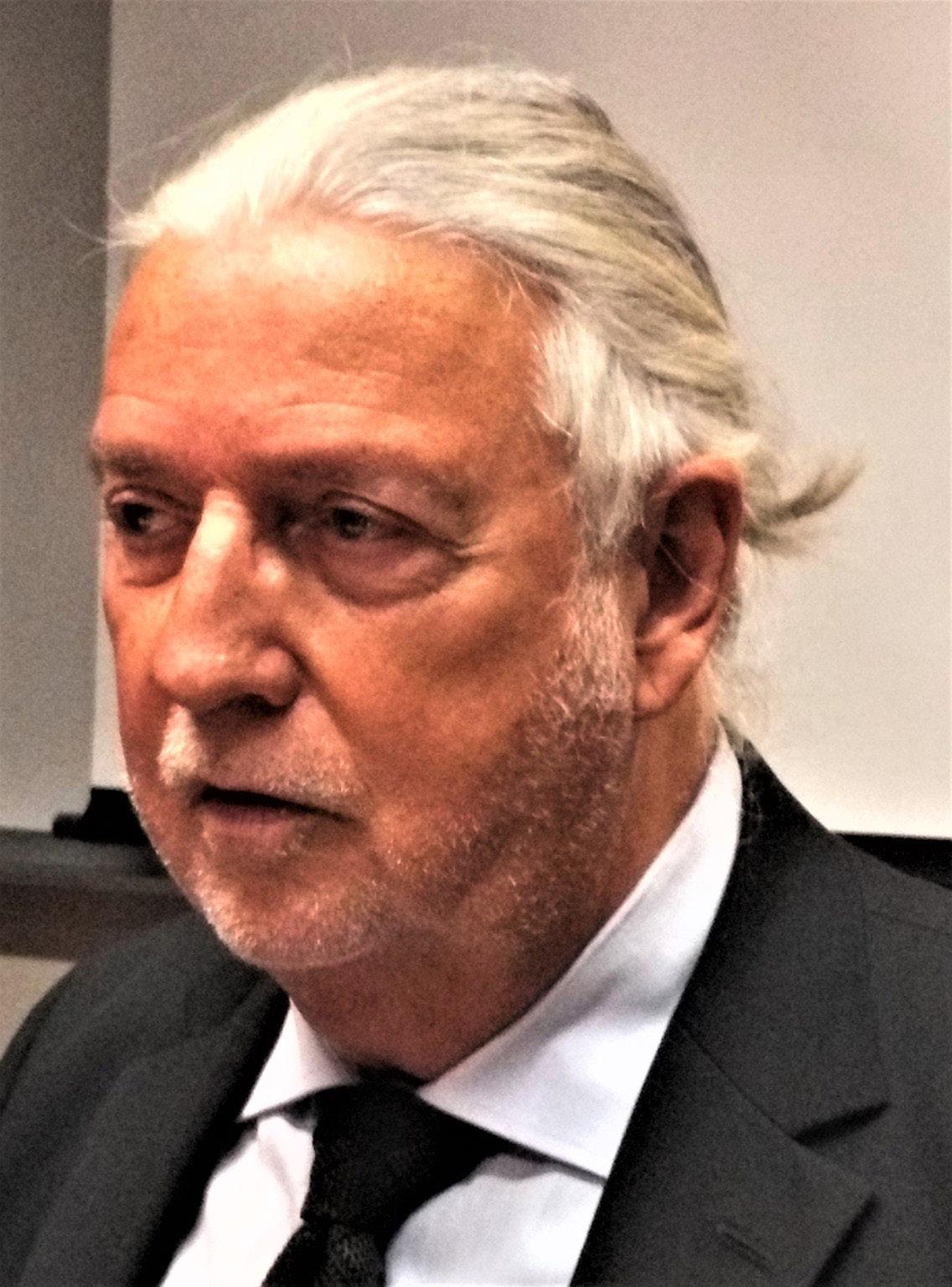
3 minute read
Former Obama U.S. Ambassador To Cuba Pained As Trump Grinds Engagement With Havana To A Halt
Credit: Gary Raynaldo / Jeffrey DeLaurentis, former Chargé d’affaires at U.S. Embassy in Havana, Cuba under President Obama, speaks at Columbia University on US-Cuba relations in New York City,, Oct. 29, 2019.

Advertisement
By Gary Raynaldo
DIPLOMATIC TIMES
“THE proudest day of my career was when President Obama nominated me to be the U.S. Ambassador to Cuba,” Jeffrey DeLaurentis said. DeLaurentis is an American diplomat who served as the Chargé d’affaires ad interim of the Embassy of the United States in Havana from 2015 to 2017. Speaking at Columbia University in New York City on Wednesday October 30, 2019. DeLaurentis reflected on his long career in the foreign service and, in particular, his leading the embassy during the historic U.S.-Cuban detente and restoration of diplomatic ties in July 2015. The diplomat reviewed the current state of US-Cuban relations and the trajectory for the future during his presentation at Columbia University’s Institute of Latin American Studies Cuba and Beyond Series. The activation of Title III of the Helms-Burton Act of 1996 by the Trump government in May has opened the door for lawsuits filed with U.S. courts over the use in Cuba of nationalized land and property after the 1959 revolution. The U.S. Trump administration also put in place actions that prohibit U.S. cruise travel, and restrictions on people-to-people travel to Cuba.
-Ambassador Jeffrey DeLaurentis
Washington’s ‘Man In Havana’ Worked Diligently To Normalize Relations With Cuba
On September 27, 2016, President Obama announced his intent to nominate DeLaurentis to be the first U.S. Ambassador to Cuba in over 50 years:
President Obama said: “Today, I am proud to nominate Ambassador Jeffrey DeLaurentis to be the first U.S. Ambassador to Cuba in more than 50 years. Jeff ’s leadership has been vital throughout the normalization of relations between the United States and Cuba, and the appointment of an ambassador is a common sense step forward toward a more normal and productive relationship between our two countries. Thereis no public servant better suited to improve our ability to engage the Cuban people and advance U.S. interests in Cuba than Jeff. ”
The former ambassador to Cuba fondly shared his experiences working to normalize US-Cuba relations after his appointment as the top diplomatic official at the U.S. Embassy in Havana. DeLaurentis said negotiations began in early 2014 and culminated in the historic announcement by President Obama and Cuban President Raul Castro on December 17, 2014 on the new policy of engagement by the two countries. Today, DeLaurentis said the Trump administration continues to reverse Obama’s policies with sanctions against Cuba. “US Special Envoy to Venezuela Elliot Abrams this month called for new sanctions for Cuba over its support for Venezuelan President Nicolas Maduro. I poured my heart and soul into the normalization process (relations between US – Cuba),” the diplomat said.
“One of the most difficult moments for me professionally was to sit back in the U.S. Embassy on June 16, 2017, DeLaurentis said, recalling when President Trump announced his new Cuba policy that set out to reverse and gut major parts of the Obama engagement. “I departed Cuba 21 days later in July. For me, after six months of expressing opposition inside the Embassy , trying to keep morale up, I could no longer hold in my reaction to the policy changes that I had been opposed to, looking at everything going down the tubes.” Obama Administration Began Plan Of Secret Talks With Cuba
DeLaurentis said the Obama Administration began a plan of engagement with Cuba with secret talks. “The secret talks took place in Canada with secret negotiations. The Cubans were really suspicious. We began with third-party engagement and sealed the deal October 28, 2014, the diplomat said. “In November 2014, negotiatiations (Continued Page 9).


